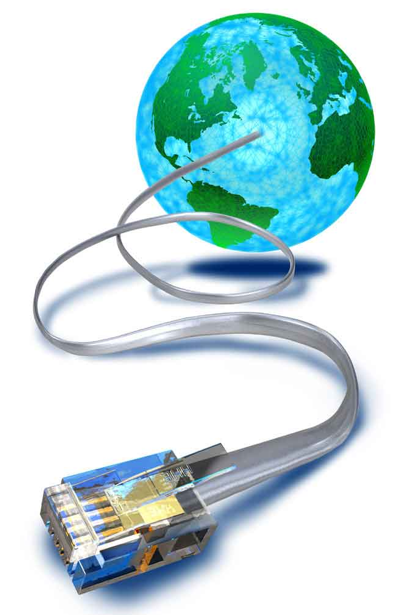Should broadband connectivity be a right?


Vermonter, inventor, author and Fractals of Change blogger Tom Evslin recently wrote about the real-life challenge to bring broadband to the masses in the state of Vermont and the implications of such a system -- namely, how such a system is intertwined with "the electrical system of tomorrow, the health care system of tomorrow, and the education system of today," not to mention communication, commerce, entertainment, e-government and research.
We used to think it was enough to make broadband accessible everywhere. That's no longer good enough. We now need to make sure that everyone actually has broadband in his or her residence and business. Everyone! (voluntary cave dweller excepted). Our goal in Vermont is to combine stimulus money with private investment and state bonding authority to move us quickly not only to 100% broadband availability but 100% broadband penetration.
According to Evslin, data flow is the new elixir of life, in so many words. A smart electrical grid depends on unimpeded data flow in near-real time from customer to corporation. A successful electronic health record system -- leading to improved and more accurate care -- depends on a data pipeline to handle "bandwidth-hungry objects like x-rays" that can reach all the way to the home. Et cetera.
"Everyone needs to be online," Evslin writes. So is broadband connectivity a right in the 21st century?
Obviously it's not an explicit one. But let's look at the spirit, rather than the letter, of the law, at least in the U.S. One of the points of the First Amendment to the U.S. Constitution is to make sure the people are informed enough to make decisions. It says:
Congress shall make no law respecting an establishment of religion, or prohibiting the free exercise thereof; or abridging the freedom of speech, or of the press; or the right of the people peaceably to assemble, and to petition the Government for a redress of grievances.
The informers, for better or worse, being the press. And this concept carries on into other applications, such as the Fairness Doctrine (and, by extension, the equal-time rule in the Communications Act of 1934), which aims to ultimately inform the people about the goings-on of the government. Politically, C-SPAN is a good example.
But the times, they are a changin'. Is broadband the new C-SPAN? Can, and should, fairness be accessed with an RJ-45 plug?
ZDNet's own Richard Koman, master of all legalese, explains why 'Net connectivity isn't currently a fundamental right. But should it be?
Evslin uses education as a metaphor, explaining that students must have equal-access to "the equipment and connections to get online when they go home" to complete homework online. For Vermont, that means a plan aiming for 100 percent penetration. But Vermont's quite a small state. Shouldn't equal-access cross state lines?
Is broadband connectivity a right?